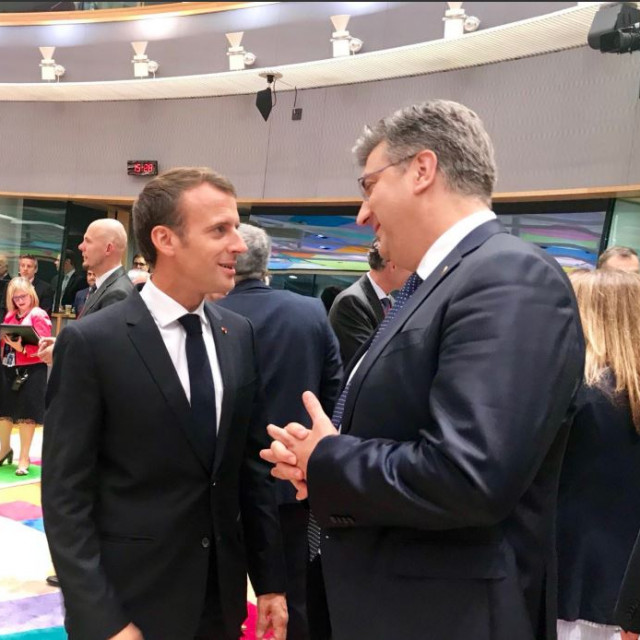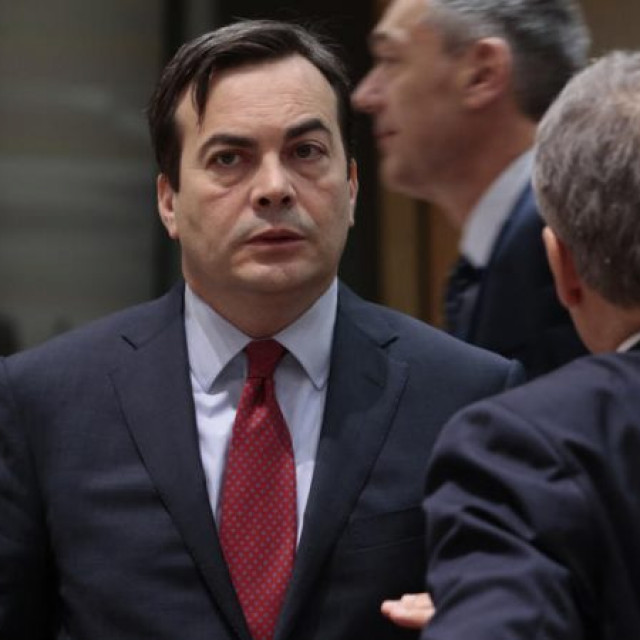
EURACTIV Italy interviewed Amendola on the eve of the meeting of the General Affairs Council (which brings together the Ministers for European Affairs of the member countries) of the European Union, to reflect on the European situation from the point of view of the Italian government.
The Franco-German proposal of a Recovery Fund accepts some aspects of the Letter of 9 countries in March. What do you think about the new position of Germany? Its evolution will put pressure on the “Frugal” countries?
Since March we had many important choices at European level. The ECB, the Commission and also the 27 MSs have created 3 safety nets through the SURE program, the ESM, and the EIB. We still miss the last crucial steps: an ambitious EU budget and Recovery Fund. But many steps have been taken since March. The EU is advancing, also on the central issue of the Recovery fund: how to develop it and for what purposes. The German position in the letter with France clarifies that the funds must be taken on the market, i.e (EU) debt, and be used in favour of the sectors and countries most affected by the pandemics. And also other declarations from CDU personalities, like recently Bundestag President Schäuble, are very important. We are on the path Italy proposed: new instrument and important resources against a recession that hits all EU countries.
Will it be possible to overcome the “frugals”’ countries opposition?
I spoke with the European affairs Ministers of all those 4 countries. I explained that Italy rejects the narrative of the frugals against the spendthrifters. Italy is a founding country, a pillar and a net contributor of the EU. Our aim is to defend the integrity of the European single market. Its benefits advantage all countries, including especially the “frugals”. We don’t want a bilateral debate, but putting together the best ideas to defend the single markets, its export, the benefits for the citizens, the industrial value chains, that are common and belong to all the 27 MSs. The Frugal’s document is too defensive with regards to the aim of defending and reforming the single market.
Between SURE, ESM and EIB, the EU answer to the pandemic is already worth 540 billions euro, without the 500 billions Recovery Fund being negotiated. They are essentially financed with different forms of common or joint debt issuance. How should this debt and the EU budget be financed? Is Italy in favour of new own resources?
Even for the “Frugals” it is clear that the Recovery Fund resources must be found on the market. Nobody doubts anymore the need of a debt issuance. This was an historic battle and proposal by many great European personalities, from Delors onwards. These resources must be managed by the Commission, within the EU budget and MFF. The Commission shall assess who are the countries and sectors most affected by the economic recession caused by the pandemics. On April 23 we reached a compromise in this direction: reach a joint answer by the 27 MSs. This time the 27 MSs together, not only the ECB, pledge to do “whatever it takes”.
In the Italian debate some believe it appropriate for the Italian government to put condition on the businesses to whom it provides guarantees on bank’s loans, but unappropriate for the EU to attach conditions to funds or loans provided to its MSs. If the answer to the pandemic is financed at EU level, will a EU coordination on its use be needed too? What should be the priorities on which to spend those resources?
Unfortunately in Italy the debate is schizophrenic. Two months ago the refrain was “Europe abandoned Italy”. Now it’s on how the European resources should best be spent. Still, it’s a step against euroskeptics. Obviously, the Commission should manage the resources. The Commission is taking a role it never had before. Ten years ago the crisis was managed at the intergovernmental level. Now it is the Commission which shall organise and manage the budget and the Recovery Fund. Some call this negatively as “conditionality”. I think this is part of a program of how the funds are used which must be clear to all. It must be managed wisely to support and innovate the single market. Reforms are necessary about competitivennes, state aid, minimum level of taxation, social policies, Green deal and digital. And all countries shall participate. Reforms and resources are the two priorities for the EU.
You say that governments are now doing their part. But probably due to the unanimity rule, it takes them much more time than to the supranational institutions, such as the ECB and the Commission. The Juncker Commission already proposed to move to qualified majority voting on fiscal issues and foreign policy. Is Italy in favour of such proposals?
We are in favour. You may recall that at the beginning of the legislature Commissioner Gentiloni proposed to use art. 116 TEU to overcome unanimity on tax harmonization. So even within the current Treaties there is the possibility to implement a mechanism not subjects to vetoes. Vetoes are what block the advancement of the EU reform process.
In Italy the BTP Italia issues last weeks at 1,4% were considered a great success. The ESM credit lines rate is 0,1% with the only condition of being use for health spending. Would it not be convenient to rather use the ESM and save money on the interest rate?
The Italian government always said that we would negotiate on all the new instruments of fiscal policy. We just reached the agreement on the EIB, one of three safety nets. Now we are negotiating the Recovery Fund and the MFF. Then we will pragmatically evaluate together within the governing coalition – where there are different positions on this issue – the various options that the results of the negotiations provide to support Italy’s finances.
On the global level tensions arise, from Hong Kong to the Mediterranean area. What is your view on the evolution of the situation on the ground in Lybia? And what are the prospects for European integration on foreign, security and defence policies?
Also because of Covid-19, new geopolitical tensions, above the existing one, arise. Including in the enlarged Mediterranean area, especially in Lybia, where external forces are also present in the conflict. One of the main problem for the EU is to develop not just its own sovereignty and autonomy, but also a geopolitical posture up to the challenges posed by the tensions in the global community. Three months ago many booked a place at the funeral of multilateralism. After Covid-19 it is clear the need to have a serious and stable framework of relationships to address conflict and the new geopolitical scenario. The EU relationship with Africa will be crucial. Africa shall be our sister in this century, playing a central role in the enlarged Mediterranean area.
The 2019 EU budget was 165 billions euro, less than 1% of the EU GDP. The EU answer to the pandemic will probably be worth over 1000 billions. Is this a qualitative leap forward in European unification?
I believe that everybody is realising the centrality of art. 311 TEU and the issue of own resources. And I am glad this was stressed in the Franco-German document too. The EU shall focus on getting new resources, also linked to its autonomy from an economic and industrial perspective. I think for example at the digital tax and the carbon border tax, which can help increase the budget, apart from new contributions by MSs. This is the way the EU should take.
The Conference on the future of Europe is still a useful instrument, or is it necessary to rapidly move to a Treaty reform?
There is an on-going debate, also in the General Affairs Council. The Croatian Presidency plan had to be revised, and we hope the German Presidency will. But Europe’s future will be decided mainly in the next 2 months, on how we will address together the recession induced by the pandemic. We must be clear on that. The future of Europe rests on its economic and political resilience, and on the unity of the 27 MSs in a crisis without precedents, one of the most severe and intense in the history of our continent.





Za sudjelovanje u komentarima je potrebna prijava, odnosno registracija ako još nemaš korisnički profil....